Inclusion
Our mission is to build and inspire leaders who make the world a better place. We challenge and prepare our students to be best in the world and the best for the world. We develop their knowledge, understanding and skills so they graduate ready to be team members and leaders who understand the value of inclusion.
Everyone in our community should feel that they belong. We’re willing to have tough conversations and to do the hard work to achieve this goal.
Inclusion is one of our core values. Every individual should have the same access to opportunities, be treated equitably and feel valued. Our community celebrates diversity as a source of strength and welcomes different backgrounds, opinions and experiences. We welcome new ideas and perspectives along with vigorous debate so that learn from each other. As we develop a better understanding and appreciation of our differences, we can reach our full potential as individuals and as a community.
We want to represent the communities in which we live, work and serve, and build an inclusive community where we:
- Welcome all identities, cultures and perspectives
- Treat each other equitably and respectfully
- Feel valued and a true sense of belonging
- Share ideas, listen to and learn from each other
We are committed to being part of the change we all need to build a better world.
Developing inclusive leaders
We are working to create a more equitable, inclusive learning environment.
The ability to foster inclusion belongs in the toolkits of all leaders. Our work includes:
- Learning inside and outside of class: From orientation to for-credit courses to workshops, events and guest speakers, and career preparation, we are committed to preparing our students to understand, negotiate and address complex topics from personal, organizational, leadership and management perspectives. We are preparing them to listen to and collaborate with and understand people who are different from them.
- Hearing our students’ voices: Student clubs in the Undergraduate Business Program and MBA Program are an important part of our students’ experience. They also play important roles in our community as change makers and allies. Jasmine Marshall and Xavier Nonez (both BSBA ’21), Minority Business Student Alliance co-presidents, led us in a conversation about race, racism and current events in the U.S. Angelica Leigh (PhD ’20), who studies the impact of mega-threats on minorities at work, urged us to engage in acts of positive deviance after the murders of Ahmaud Arbery, Breonna Taylor and George Floyd.
- Partnering with industry: In partnership with top accounting firms EY and DHG, our Master of Accounting Program offers mentorship programs that introduce undergraduate students from historically underrepresented groups to the profession.
We are developing our understanding and appreciation of our differences, and cultivating an inclusive, supportive environment for every member of our community — students, faculty and staff — where our ideas and perspectives are heard, welcomed and valued.
Building community
Meet members of our community who are leading the change we need to build a just world.
(Select a photo to read profile.)
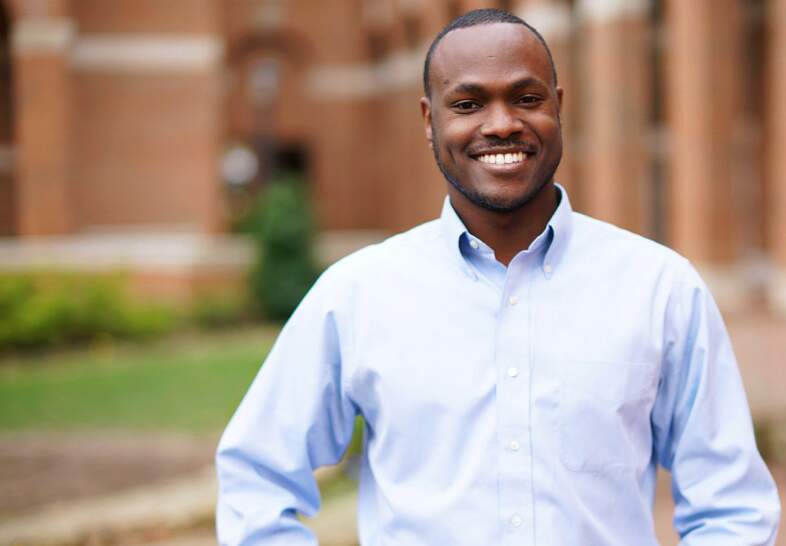
Jermyn Davis
Making change
Jermyn Davis

Jermyn Davis (MBA ’20), Google Cloud program manager, is dedicated to making education and work more inclusive. As a student, he was deeply engaged in the life of the School: He was a Consortium Fellow, VP of allyship for Carolina Women in Business, a member of the boards of the Pride Club and the MBA Student Association, and a member of the Alliance of Minority Business Students at UNC Kenan-Flagler.
He worked with classmates and senior School leaders to strategically imagine the future of business education at Carolina. Serving in these roles is a way to “have a lasting impact on the School, far beyond our time here,” says Davis. “I hope our group and every group I served with is known for being unafraid to address issues that will propel the institution forward.”
“Diversity is at the forefront of many businesses, and we have to ensure my peers and I are ready to succeed in all facets of business,” he says. “At the same time, diversity and inclusion work is hard. It is hard because I think you are equipping people with tools that make them challenge their communications, feedback and, ultimately, their unconscious bias.”
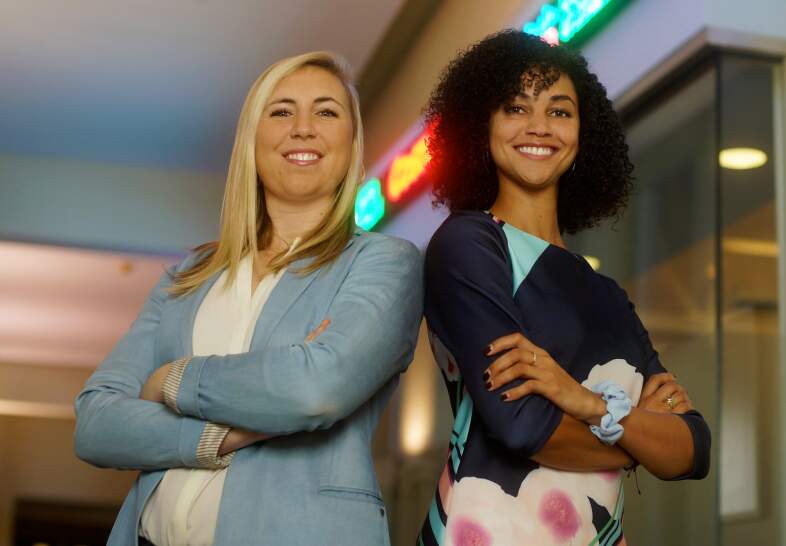
Charlotte Burnett and Michelle Kimbrough
Leading and serving
Charlotte Burnett and Michelle Kimbrough

Charlotte Burnett, a private banker at J.P. Morgan, and Michelle Kimbrough, a senior advisor in product marketing at Dell, met while serving in the U.S. Army. They decided to earn their MBAs at UNC Kenan-Flagler and went on to make a significant impact on the community as student leaders.
Kimbrough served as president of Alliance of Minority Business Students. She led a Diversity Conference dedicated to being more inclusive in business. “We want champions of diversity and allies of underrepresented minorities to understand their roles in hiring and supporting careers,” she says.
Burnett was president of Carolina Women in Business.She led planning for its annual conference, one of the largest student-run conferences. It focused on “breaking barriers” to show how women across a range of industries overcame challenges.
“The number of women in business will grow,” she says. “UNC Kenan-Flagler sees the importance of reaching gender parity and we are looking for ways to increase the number of women applicants.”
A Consortium fellow, Kimbrough shared the versatility of the MBA degree with prospective applicants. “We’re not just diverse because of our skin color or gender,” says Kimbrough. “We bring diversity of thought and experience to the business world.”
Burnett and Kimbrough were both active in the School’s Veterans Association, with Kimbrough serving as EVP. They encouraged other vets to apply to business school and increased understanding the value vets bring to the School and employers.
They expect business schools – as well as the rest of society – to become ever more inclusive and representative. They anticipate a brighter future with more job satisfaction, better pay and a more diverse group of people at the table.
“Many men and women self-select out of applying to top MBA programs because they feel they’re not traditional candidates and therefore won’t be successful,” says Kimbrough. “It’s absolutely not true. They will be successful and get great jobs.”
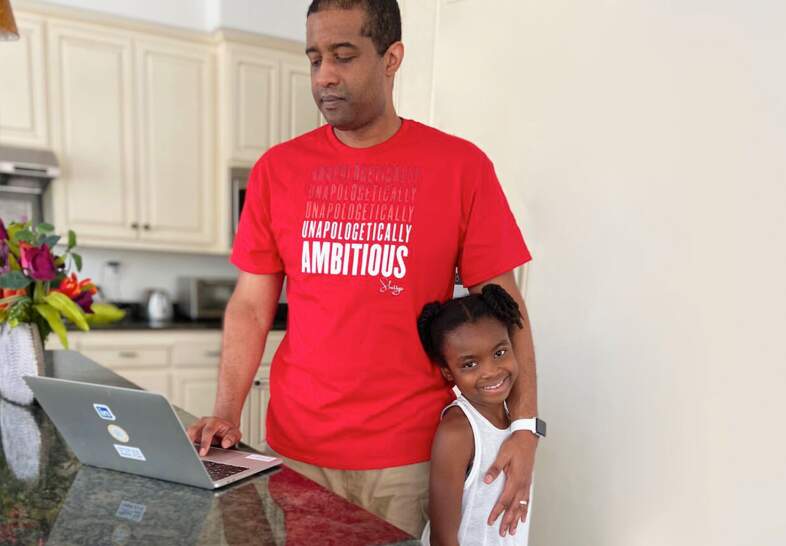
Kevin Clark
Helping others reach new heights
Kevin Clark

Kevin Clark (BSBA ’89) is head of strategic transformation for marketing and communications at LinkedIn.He credits UNC Kenan-Flagler with giving him an edge in his career that includes a wide range of roles at IBM, Sears Holdings Corporation, Home Depot, EY and Facebook. He’s known as a thoughtful, strategic leader who builds consensus and tracks impact.
He’s making a difference as a trusted advisor at UNC Kenan-Flagler. Committed to improving higher education, he serves on the Board of Advisors, previously working on the Business Partnerships Committee and now on the Diversity, Equity and Inclusion Committee. He is impressed with the School’s desire to keep improving and its focus on genuine attention to student needs.
“My purpose in life is to help individuals and organizations reach their respective potentials,” he says. “To be able to do that for UNC Kenan-Flagler means a lot.”
Clark mentors students to prepare them for MBA and college programs. He serves on the Gifted Education Foundation board to support first-generation college graduates and marketplace leaders from low-income communities across America.
At LinkedIn, Clark is transforming the operations of the marketing and communications department to be more effective and efficient. Developing professional relationships to help people reach new heights is a priority. “Your biggest asset is your people,” he says. “If you don’t optimize them, you don’t optimize your organization.”
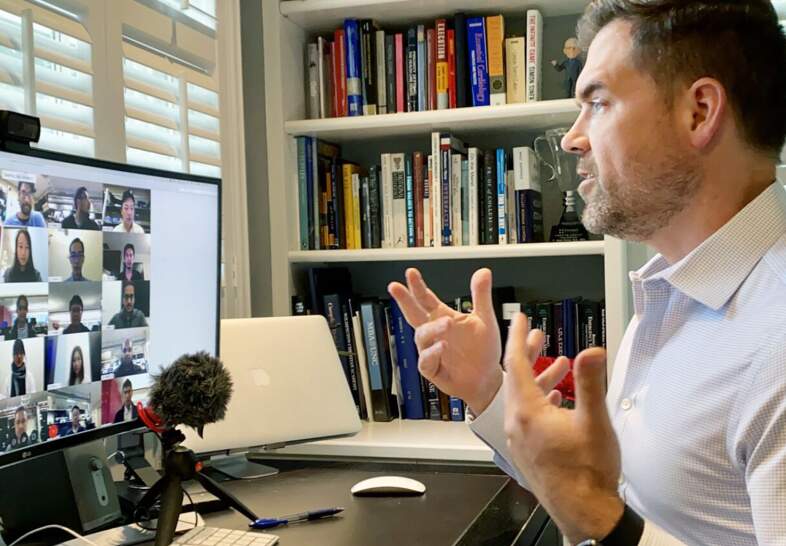
Adam Brown
Seeking greater impact
Adam Brown

Adam Brown (MBA ’13) was a doctor specializing in emergency medicine when he realized earning an MBA would help him improve even more patients’ lives.
In a single shift in the ER, he would see 25 to 35 patients. With his UNC Kenan-Flagler education, he could help even more people by making broad improvements in emergency departments and hospitals.
Now as president of emergency medicine at Envision Medicine, he is responsible for more than 15 million patients’ lives every year and leads more than 10,000 clinicians in more than 46 states. In 2020, Envision appointed him as co-lead of its COVID-19 task force, lead of its clinical communication strategies, and an executive sponsor for its DEI initiative.
Brown shares his expertise with UNC Kenan-Flagler, where the culture starts with “realizing that people are more important than profits. In the end, what we determine to do with this knowledge is of the greatest importance.” He co-chairs the Center for the Business of Health Leadership Board and serves on the Business School’s Board of Advisors and its DEI Committee. Brown frequently speaks at the School, and when COVID-19 made it unsafe for MBA@UNC students to travel in March 2020, he signed up to help deliver an online course on how business people can effectively lead, manage and navigate during the COVID-19 crisis.
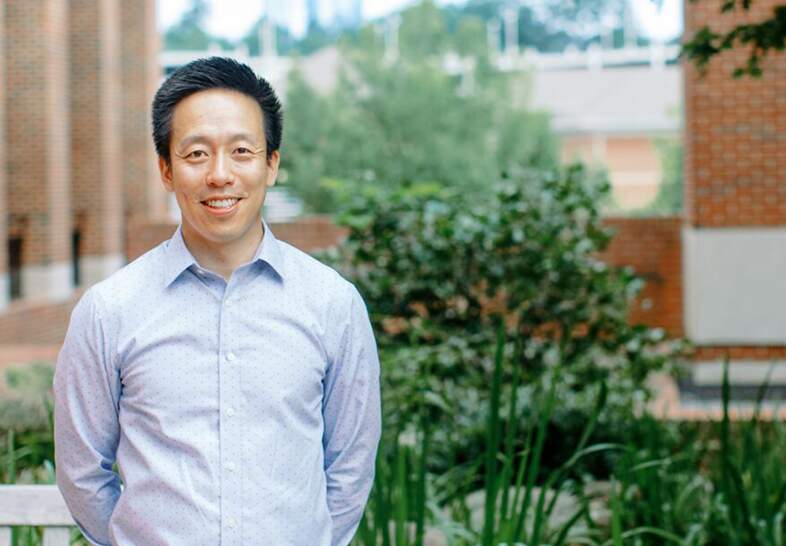
Chihao Tsui
Finding healthcare solutions
Chihao Tsui

Chihao Tsui (MBA ’20), Chartis consultant and founder of MyOwn Communications, worked in U.S. healthcare for a decade. Determined to remedy some of its dysfunctions, he enrolled at UNC Kenan-Flagler to build his business knowledge. As it turned out, UNC Kenan-Flagler was the platform to launch his business, which he founded in March 2020 with two classmates.
The business, MyOwn Communications, is a startup that harmonizes provider communication across the fragmented healthcare value chain. He drew on his experience as an orthopedic physician assistant as well as the robust healthcare program anchored in the Center for the Business of Health. “It was a phenomenal experience to sit in a classroom with future physicians, public health experts and business leaders to discuss relevant healthcare issues. Students gain a unique perspective that facilitates a cross-functional approach to solving our greatest healthcare challenges.”
Extracurricular learning was a standout feature of his MBA experience. He joined a host of student clubs, from the MBA Healthcare Club, serving as vice president of diversity and student engagement, to the Asian Business Club, serving as executive vice president, to the basketball and flag football club teams.
Through his experiences Tsui learned how a diversity of perspectives leads to more creative ideas and better decisions. “I’m a little bit older compared to the typical MBA student. For me it was a great way to meet younger classmates and understand the millennial mindset,” he says. “It’s refreshing to see how they continually strive to innovate and challenge the status quo.”
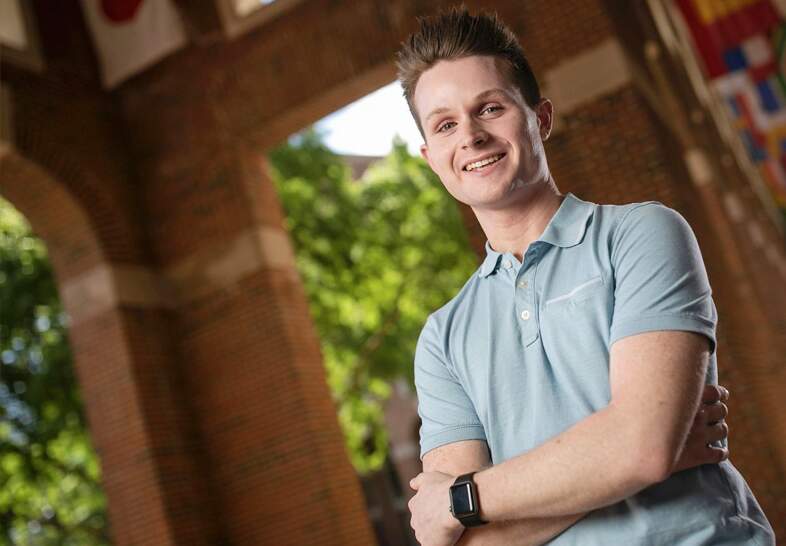
Graeme Strickland
Building community through change
Graeme Strickland

From the start of his time at UNC Kenan-Flagler, Graeme Strickland (BSBA ’20), an EY transformation consultant, made sure UNC Kenan-Flagler was even better when he graduated.
He put DEI at the top of his priority list. He knew many people outside the Business School think of it as a homogenous community. He wanted to dispel stereotypes and show the diversity of a modern business program.
“I wanted to make sure people felt at home,” he says. “They didn’t just go to class and then leave. They don’t have to put on a face or put on a suit to go into the Business School.”
To start, he revamped the Undergraduate Business Program’s (UBP) Pride Club. “I saw a void for the LGBTQ+ community in the program,” he says. He increased visibility, enlisted allies and brought people together to make big change. He and a classmate transformed the UBP’s diversity and inclusion committee, and elevated the conversation to address structural problems for underrepresented communities.
The most visible result of his work are the LGBTQ+ flag and other diversity flags at the School.In his advocacy for displaying the LGBTQ+ flag, his efforts grew to include Native American, Pan-African, military and Peace Corps flags.
The flags “reaffirm the values of our community and share these values with visitors and the rest of campus,” Strickland says. “We are sending a message that studying business isn’t just for one type of person, and adding to our School’s diversity allows us to include even more top talent and future leaders.”
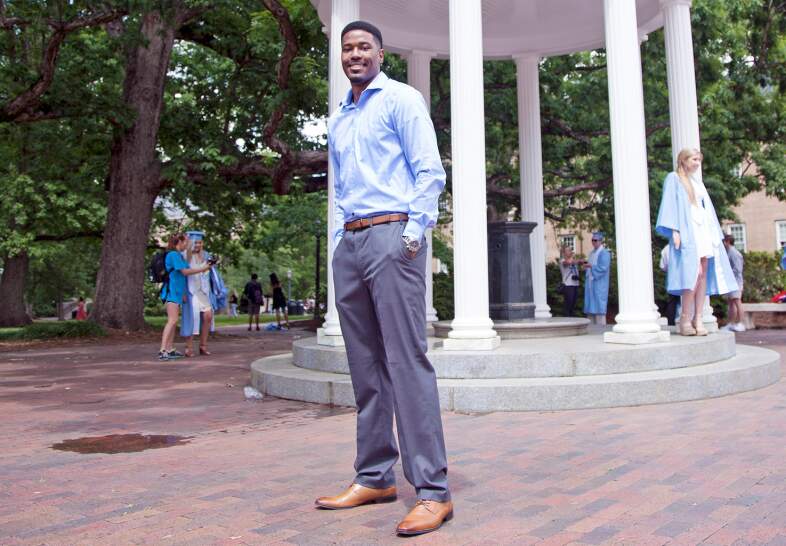
Alexander Jackson
Choosing success
Alexander Jackson

Alexander Jackson (BA ’15, MAC ’16), Spaulding Ridge manager, will tell you success is earned through choice, not chance.
Early in his life he faced adversity, but the East Dallas Boys & Girls Club changed everything for him. Mentors helped him understand how a business career could help him achieve success and set him on a path that brought him to Carolina.
He graduated from UNC debt-free as a Carolina Covenant Scholar and participated in the Master of Accounting (MAC) Mentorship Program, which helps undergrads develop business skills and learn about the accounting profession from successful alumni.
Giving back was his passion. He became a Boys & Girls Club volunteer at 16 and joined the staff. When he came to Carolina, he signed on as a mentor and math tutor with the Durham club.
“As I became older and began to realize how my life had progressed, I wanted to provide the same opportunities to other kids who grew up in similar situations,” he says.
MAC mentor Matthew Keffer (MBA ’98), PwC assurance partner, helped Jackson realize that he didn’t have to choose between a business career and service. “Matthew showed me what it was like to work at a top accounting firm while giving back to the community,” he says.
Jackson moved from mentee to mentor in the MAC Mentorship Program, and joined PwC’s Dallas office when he graduated.
And the most important advice he wants to share: Do what you love.
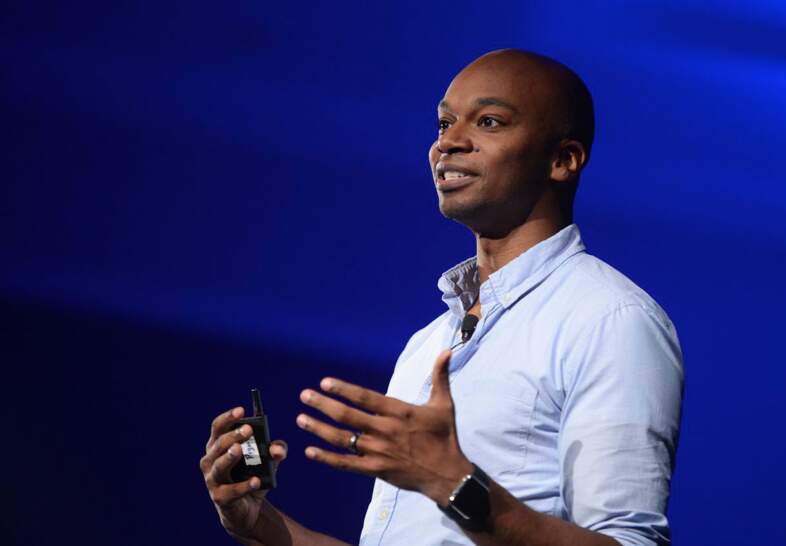
Khalil Smith
Creating diverse and inclusive workforces
Khalil Smith

Kahlil Smith (MBA ’13), VP of DEI at Akami Technologies, has made it his mission to encourage a more representative workforce and improve the inclusion of different ethnicities, genders and backgrounds.
“What we need to do is fundamentally change the systems in place that have led to this movement. Let’s go beyond the rhetoric and get to the details.”
He has advised dozens of leading companies on how to create a more diverse and inclusive workforce.
“Being inclusive is about pulling apart unconscious bias, stimulating employee engagement and advocacy,” he says. “It can create opportunities for people that otherwise would not have them.”
He enrolled in the Weekend Executive MBA Program while working at Apple even though he didn’t have a bachelor’s degree. “For a lot of schools, my background was a non-starter,” says Khalil. “UNC Kenan-Flagler was a place willing and able to see beyond my background. They saw the potential I saw in myself.”
He founded a consulting firm to help small- and medium-sized firms to improve their learning and development programs, built the DEI practice of the NeuroLeadership Institute before he joined Akamai Technologies.
Smith is helping UNC Kenan-Flagler with its inclusion initiatives. He’s advising the Undergraduate Business Program on how to improve Black representation. Universities need to “think deeply about building systems to create more opportunities for traditionally underrepresented groups.”
He is passionate about giving back to the Business School that gave so much to him, he says. “I can’t think of a better way to use the skills I’ve gained than to give back to such a storied and important institution.”
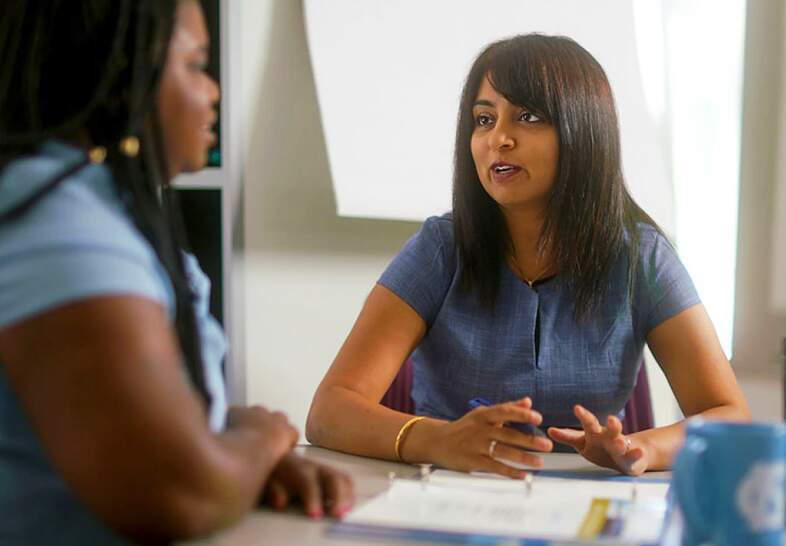
Shimul Melwani
Teaching, researching, mentoring
Shimul Melwani

DEI is important to Shimul Melwani, associate professor of organizational behavior.
It matters to her as an immigrant, a woman, a person of color, a teacher and scholar, and a mom.
After feeling like an outsider at her first job, she turned the experience into an academic journey exploring people’s emotions and interactions in organizations. “Their intersection can influence your performance at work,” she says.
Her research shows emotions have a function and purpose and can be channeled to improve engagement and connection with others.
Melwani hopes her work will make managers more compassionate and expand traditional definitions of professionalism. “More accepting organizations will make it possible for employees to bring more of their whole selves to work.”
Bringing your whole self means being open at the office, which includes open discussions about how major world events impact your job. She and Angelica Leigh (PhD ’20) studied how Black American employees respond at work to highly publicized instances of violence against Black Americans by the police.
Melwani brings her research to her classes on leadership and managing across cultures. “I hope all students leave here understanding the value of having a communal focus and deeply understanding others’ perspectives. You can be an investment banker or a consultant and still impact the people you work with in a positive way.”
Developing inclusivity skills are essential, Melwani says, because Carolina students are driven not only to achieve professional success, but also to become better human beings — to take what they learn at UNC Kenan-Flagler and to apply it after they graduate in ways that make a difference.
